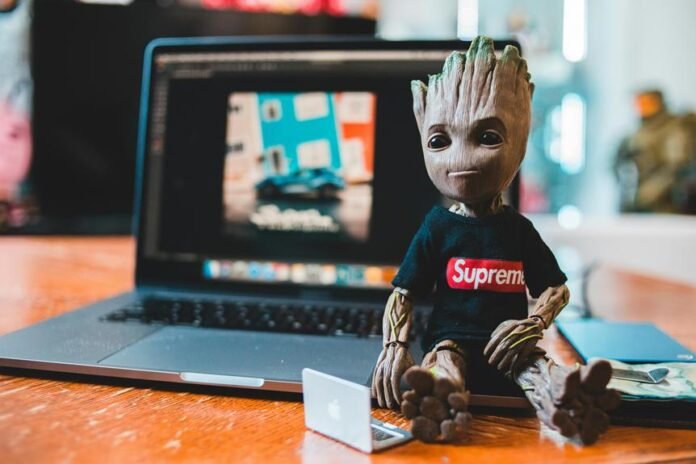Calls for a boycott of Disney and Marvel's *Captain America: Brave New World* are intensifying, largely driven by the portrayal of Israeli superhero Sabra. Advocacy groups, including the BDS movement, argue that her depiction as a Mossad agent perpetuates harmful stereotypes and glorifies violence. They criticize recent changes to the character as superficial and insufficient. Over 25 Palestinian organizations support the boycott, urging greater accountability in media representation of Palestinian identity. As the backlash grows, the implications for corporate responsibility and ethical storytelling become increasingly significant, hinting at a larger conversation about representation in popular culture.
BDS Movement's Boycott Initiative
The Boycott, Divestment, Sanctions (BDS) movement, alongside organizations such as Jewish Voice for Peace and the Movement for Black Lives, has initiated a robust campaign urging audiences to boycott *Captain America: Brave New World* due to the controversial inclusion of the Israeli superhero Sabra, portrayed by actress Shira Haas.
This initiative underscores the BDS impact on cultural activism, highlighting the profound influence that media representations can have on public perception and geopolitical narratives.
With over 25 Palestinian cultural organizations supporting the boycott, activists emphasize the need for accountability from Disney and Marvel regarding their portrayal of Palestinian identities.
Controversy Surrounding Sabra Character
Controversy has erupted over the character of Sabra in *Captain America: Brave New World*, as critics argue that her portrayal perpetuates harmful stereotypes and glorifies violence against Palestinians. Originally introduced in the 1980s as a Mossad agent, the character's evolution into a high-ranking US official raises serious ethical concerns regarding cultural impact and character history.
| Aspect | Details |
|---|---|
| Character Origin | Introduced in 1980s Hulk comics |
| Current Portrayal | Depicted as a US government official |
| Criticism Focus | Glorification of violence against Palestinians |
| Cultural Impact | Seen as part of Israeli propaganda |
Both pro-Palestine and pro-Israel groups find the rebranding inadequate, prompting a call for heightened scrutiny and accountability in media representation.
Reactions to the Film Trailer
Renewed backlash has emerged following the release of the trailer for *Captain America: Brave New World*, as advocacy groups criticize Disney and Marvel for their perceived complicity in perpetuating Israeli propaganda through the character of Sabra.
Trailer analysis reveals that changes to the character are viewed as superficial, failing to address longstanding concerns about representation and violence against Palestinians.
Audience reactions reflect a growing discontent, with many expressing that the glorification of a Mossad agent undermines the complexities of the Israeli-Palestinian conflict.
Calls for boycotts are intensifying, extending beyond the film to include Disney+ subscriptions and Marvel merchandise.
The conversation is shifting toward a broader discourse on ethical storytelling and the responsibilities of media giants in shaping narratives.
Shira Haas and Media Representation
Shira Haas's involvement in *Captain America: Brave New World* ignites a critical examination of media representation, particularly concerning the portrayal of complex geopolitical issues through the lens of popular culture. The character of Sabra, played by Haas, has drawn sharp criticism for its association with Israeli military narratives, prompting discussions about the implications of such media portrayals.
| Aspect | Implications |
|---|---|
| Media Portrayal | Contributes to stereotypes |
| Character Background | Tied to Israeli military imagery |
| Audience Perception | Influences public opinion |
| Cultural Responsibility | Necessitates responsible storytelling |
Haas's role exemplifies the urgent need for nuanced representation that respects diverse narratives and promotes understanding, rather than perpetuating harmful stereotypes.
Implications for Advocacy and Action
The ongoing backlash against *Captain America: Brave New World* underscores the critical role of advocacy in shaping public discourse around representation and the responsibilities of media creators in addressing complex geopolitical narratives.
This situation highlights the need for grassroots mobilization and corporate accountability to guarantee ethical storytelling and representation.
- Advocacy groups are amplifying voices for change.
- Boycotts can shift corporate policies and practices.
- Public pressure can hold creators accountable.
- Representation matters in media narratives.
As calls for action intensify, it becomes evident that collective efforts can influence large corporations like Disney.
The implications of this activism extend beyond entertainment, challenging systemic issues within society and promoting a more equitable representation of marginalized communities.
Conclusion
The controversy surrounding the portrayal of Sabra in *Captain America: Brave New World* highlights significant concerns regarding representation in popular media.
Advocacy groups, including the BDS Movement, emphasize the need for critical examination of narratives that may perpetuate violence and marginalization of Palestinian voices.
As calls for boycott intensify, the situation serves as a vital reminder of the power of media in shaping societal perceptions and the imperative for inclusivity in storytelling that reflects diverse experiences and histories.


